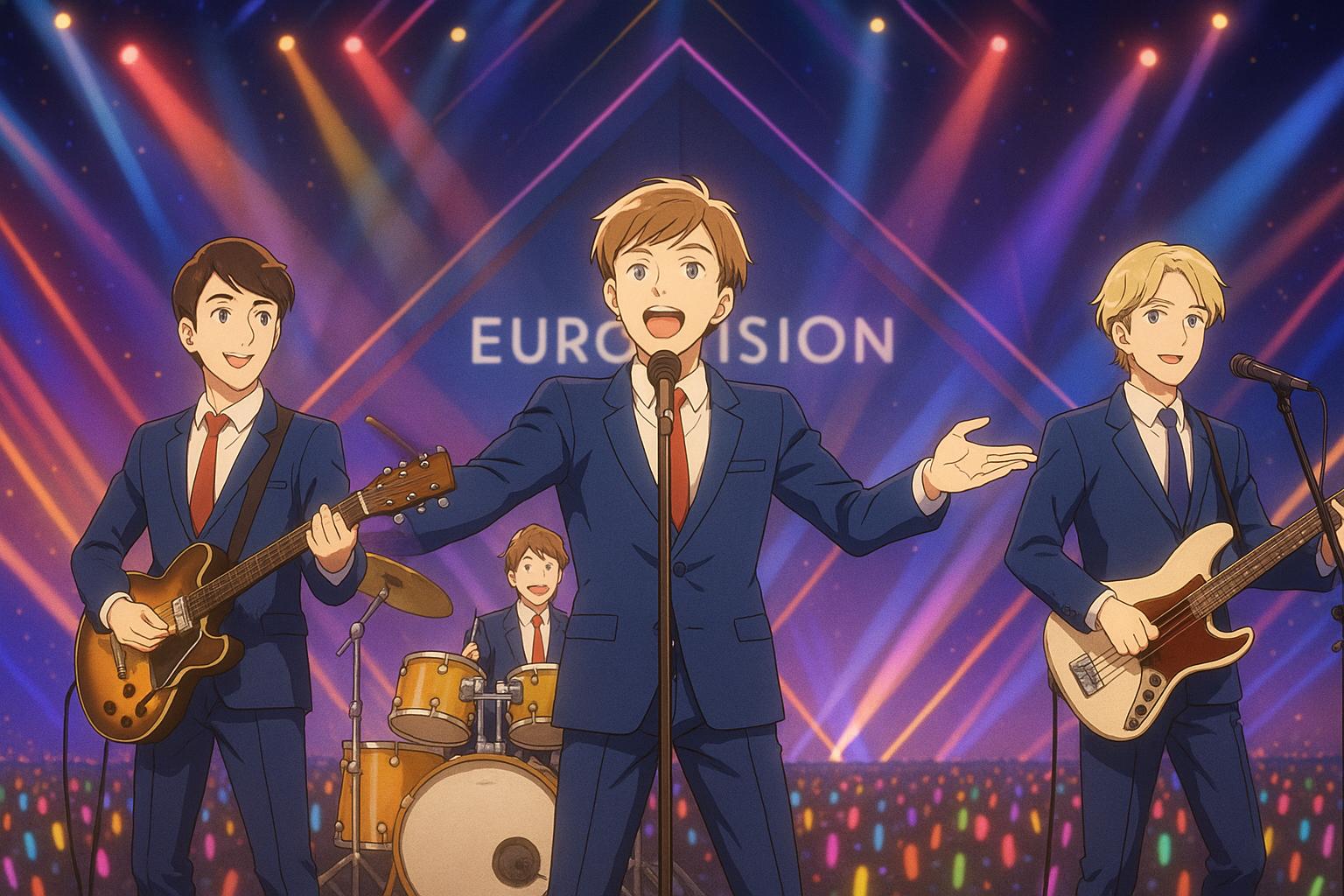In the vibrant history of the Eurovision Song Contest, certain performances resonate more than others, defining not just the competitors, but the very essence of British pop culture. Among these iconic moments lies the tale of Blue, a beloved British boy band that made a bold yet ultimately underwhelming bid at Eurovision in 2011. The contest is famous for its whimsical spectacles, catchy tunes, and a competitive spirit that often sees the UK fighting to avoid the dreaded “nil points.” For Blue, the decision to represent the UK was praised and questioned in equal measure.
Formed in 2000, Blue—comprising Duncan James, Simon Webbe, Lee Ryan, and Antony Costa—quickly carved out a significant place in music history, amassing sales of over 15 million records globally. Their hits, including "All Rise" and "Too Close," paved the way for a formidable legacy. When they reunited in 2011, their ambitions were high: they aimed to reclaim musical glory at Eurovision. Duncan James commented on the group's decision to participate, stating, "We're celebrating our 10 years together in 2011, so when the BBC approached us, it seemed a great way to mark the occasion." Simon Webbe echoed this sentiment, emphasising his excitement about representing the UK.
Blue entered the contest with their upbeat track, "I Can." While Simon's optimism suggested a belief that political factors would not hinder their chances, detractors quickly labelled the choice as "reckless insanity." Daniel Glatman, the group’s former manager, warned that anything less than victory could tarnish their reputation, likening their participation to “Lewis Hamilton entering a go-kart race”. This idea encapsulates the weight of expectation placed on the band; they were not merely competitors, but pop icons attempting to reclaim their status on an international stage.
The spectacle unfolded in Düsseldorf, Germany, where the Eurovision final took place. As they took to the stage, the group's performance received mixed reactions. Audience enthusiasm was palpable, though BBC's Graham Norton described their beginning as having a "tentative start." Nevertheless, they scored 100 points, momentarily topping the leaderboard before being overtaken by other countries. Ultimately, Blue finished in 11th place, their efforts overtaken by Azerbaijan, whose duo Ell/Nikki triumphed with the romantic ballad "Running Scared," earning 221 points.
Although the results were disappointing, they marked a turning point rather than an endpoint for Blue. Duncan James later expressed hope for the band's trajectory, suggesting that Eurovision was merely a stepping stone towards a resurgence in their music career. Even amid criticism, Blue's participation was a significant chapter, giving them both exposure and opportunity. In retrospect, their performance stands as part of myriad Eurovision memories.
In the context of an ever-evolving musical landscape, the 2011 Eurovision experience continues to illustrate the passionate risk inherent in this celebrated event. For many, the memory of Blue's bold return remains tied to the bittersweet taste of ambition and nostalgia for a bygone era of British pop. The band may not have brought home a trophy, but their journey serves as a reminder of the often unpredictable nature of the music industry and the love that audiences have for nostalgia-driven narratives.
As Eurovision 2025 unfolds, with new acts poised to capture hearts and votes, the legacy of Blue reminds us that, in the world of music, every performance can forge a new path, regardless of the final scoreboard.
Reference Map
- Paragraphs 1, 2
- Paragraphs 2, 3
- Paragraphs 3, 5
- Paragraphs 2, 4
- Paragraph 5
- Paragraphs 2, 6
- Paragraph 4
Source: Noah Wire Services
